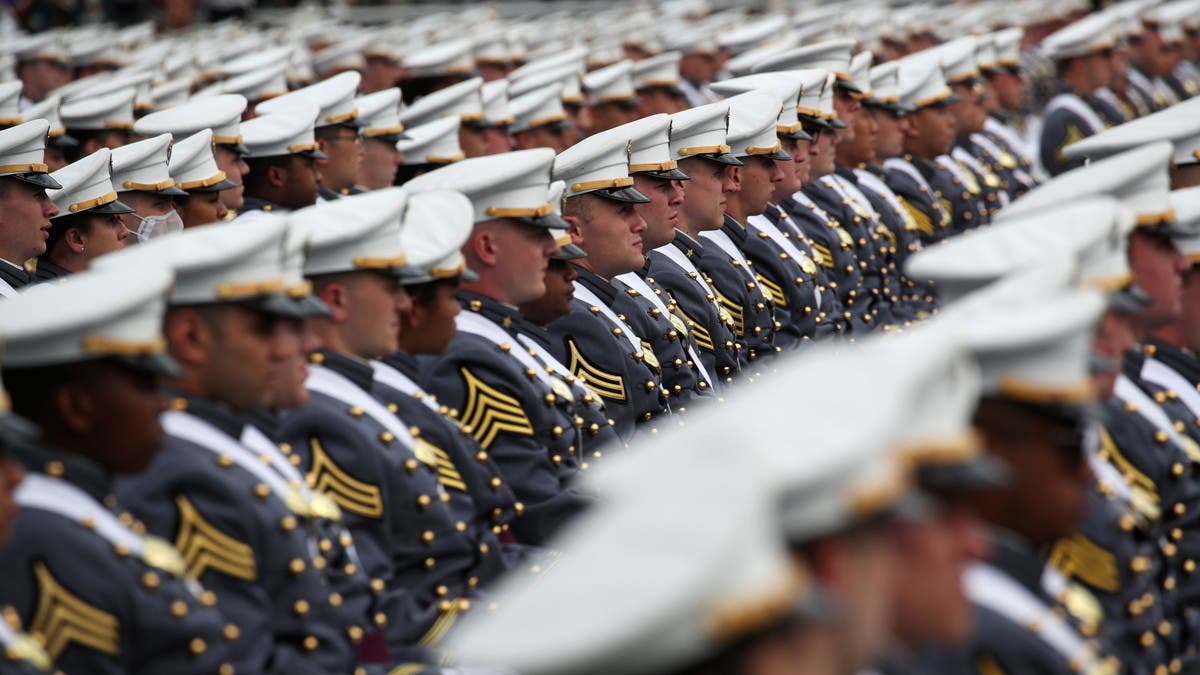The top US military officer challenged the next generation of Army soldiers on Saturday to prepare America's military to fight future wars that may look little like the wars of today.
Army Gen. Mark Milley, chairman of the Joint Chiefs of Staff, painted a grim picture of a world that is becoming more unstable, with great powers intent on changing the global order. And he told graduating cadets at the US Military Academy at West Point that they will bear the responsibility to make sure America is ready.
For the latest headlines, follow our Google News channel online or via the app.
“The potential for significant international conflict between great powers is increasing, not decreasing,” Milley said in prepared remarks. “Whatever overmatch we enjoyed militarily for the last 70 years is closing quickly, and the United States will be, in fact, we already are challenged in every domain of warfare, space, cyber, maritime, air, and of course land.”
America, he said, is no longer the unchallenged global power.
Instead, it is being tested in Europe by Russian aggression, in Asia by China’s dramatic economic and military growth as well as North Korea’s nuclear and missile threats, and in the Middle East and Africa by instability from terrorists.
Drawing a parallel with what military officials are seeing in Russia’s war on Ukraine, Milley said future warfare will be highly complex, with elusive enemies and urban warfare that requires long-range precision weapons, and new advanced technologies.
The US has already been rushing new, high-tech drones and other weapons to the Ukrainian military — in some cases equipment that was just in the early prototype phases. Weapons such as the shoulder-launched kamikaze and Switchblade drones are being used against the Russians, even as they are still evolving.
And as the war in Ukraine has shifted — from Russia’s unsuccessful battle to take Kyiv to a gritty urban battle for towns in the eastern Donbas region — so has the need for different types of weapons.
Early weeks focused on long-range precision weapons such as Stinger and Javelin missiles, but now the emphasis is on artillery, and increased shipments of howitzers.
And over the next 25 to 30 years, the fundamental character of war and its weapons will continue to change.
The US military, Milley said, can’t cling to concepts and weapons of old, but must urgently modernize and develop the force and equipment that can deter or, if needed, win in a global conflict. And the graduating officers, he said, will have to change the way US forces think, train and fight.
As the Army’s leaders of tomorrow, Milley said, the newly minted 2nd lieutenants will be fighting with robotic tanks, ships and airplanes, and relying on artificial intelligence, synthetic fuels, 3-D manufacturing and human engineering.
“It will be your generation that will carry the burden and shoulder the responsibility to maintain the peace, to contain and to prevent the outbreak of great power war,” he said.
In stark terms, Milley described what failing to prevent wars between great powers looks like.
“Consider that 26,000 US soldiers and Marines were killed in six weeks from October to November of 1918 in the Battle of the Meuse-Argonne in World War I,” said Milley. “Consider that 26,000 US troops were killed in the eight weeks from the beaches of Normandy to the fall of Paris.”
Recalling the 58,000 Americans killed in just the summer of 1944 as World War II raged, he added, “That is the human cost of great-power war. The butcher’s bill.”
Paraphrasing a Bob Dylan song, Milley said, “we can feel the light breeze in the air. We can see the storm flags fluttering in the wind. We can hear in the distance the loud clap of thunder. A hard rain is about to fall.”
Read more:
US President Biden signs $40 billion aid bill for Ukraine’s war effort: White House
Elon Musk’s SpaceX vies for military satellite launches as defense giants reset
US Air Force says it conducted successful hypersonic weapon test

 World3 years ago
World3 years ago
 World3 years ago
World3 years ago
 Business1 year ago
Business1 year ago
 Entertainment7 years ago
Entertainment7 years ago
 World7 years ago
World7 years ago
 Entertainment7 years ago
Entertainment7 years ago






